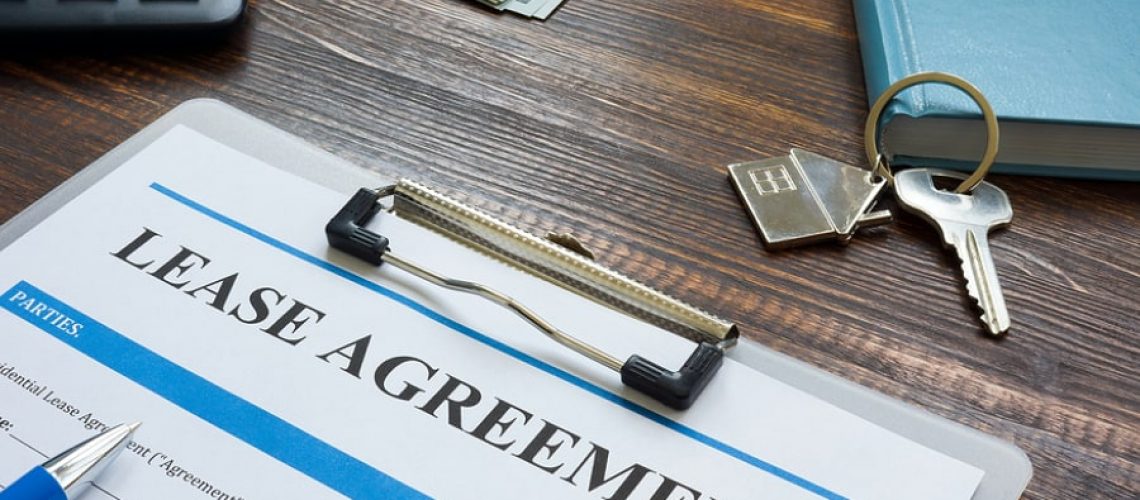A commercial lease or tenancy agreement is made between the tenant or business owner and the landlord or owner of the commercial plot. This agreement specifies the precise rights and obligations that both parties are subject to when the landlord chooses to lease a space to the occupant for business purposes.
No law in Singapore specifies the elements of a commercial lease or tenant agreement. This indicates that the agreement’s parameters are mostly the result of negotiations between both parties.
With that said, there are multiple terminologies that licensees and occupants in Singapore typically include in a commercial lease or tenant agreement. In this article, we will explain in full detail the standard terms used so there will be no confusion in your possible future lease.
1. Lease tenure
Commercial lease or tenant agreements will include the tenure of the lease. In Singapore, the tenure of a lease or tenant agreement relies on the dimensions of the business premises to be rented.
Typically, the tenure of the agreement for a relatively spacious commercial area can be from five to six years. Regardless, the lease or tenant agreement is up to three years if the commercial area is small.
Numerous landlords will grant their occupants the option of signing a new lease at the market rate just before their current one expires. The choice to renew for another lease typically includes the following:
- For a term that is equivalent to the current lease.
- For a rental payment that was decided on earlier or at the current market price during negotiations.
2. Rental fees
Commercial lease or tenant agreements in Singapore will also note the rental fee or gross rent that is owed to the landlord by the occupant.
The gross rent is typically paid every month. It includes:
- The base rent, which is computed for every square foot of the commercial space.
- If the landlord is registered as a Goods and Services (GST) company, 7% of the GST.
- Service charges, if applied.
These service charges are the payments for the landlord’s additional services like building maintenance, repairs, and security. It might mention that the service charge can change throughout the lease.
3. Utility and maintenance
The occupant is typically responsible for paying all utility bills to the proper service providers under the terms of a commercial lease.
In any case, the landlord is in charge of carrying out necessary repairs and seeing to it that the surrounding property and communal area are kept clean. Only the interior business premises that have been rented out require maintenance and cleaning by the tenant.
4. Insurance
In the case of property damage, personal injury, or death resulting from any of the tenant’s operations on the premises during the rental period, the occupant is normally obliged to get public liability insurance coverage.
5. Reinstatement
Tenants must return the rented space to the landlord in its original state at the end of the rent. This is known as “reinstatement”.
The extent of the restoration required before the occupant can be released from the lease will be specified in the commercial lease or tenant agreement. The reinstatement may involve taking out every piece of furniture, repainting every wall in the original shade, and fixing any damage the business space sustained during the lease.
The reinstatement stipulation can also include the landlord appointing their preferred reinstatement contractor at the occupant’s expense. When that happens, the occupant must pay for the complete reinstatement works.
Conclusion
It is crucial to ensure that your commercial lease or tenant contract correctly shows the agreed-upon terms and conditions between landlord and tenant. A complete understanding of the lease terms is recommended, so the occupant knows the scope of their responsibilities. This can also potentially help small businesses in avoiding any hidden fees or unclear clauses in the contract that can affect them financially.
On this subject, a corporate attorney can draw up a commercial lease or tenant contract that adheres to the goals of the landlord and renter.
Suppose a commercial lease or tenancy agreement has already been made, but you are unsure of the scope of your obligations. In that case, it is always wise to consult a corporate lawyer for advice on what you should and should not do under the written-up agreement.
Once you have set up your commercial space, it is now time to consider whether you should outsource your business’ accounting matters. Having been in the industry for many years and helping small and medium-sized businesses, we at Tianlong Services highly recommend business owners and entrepreneurs outsource accounting in Singapore. This is because accounting and bookkeeping services can help minimise overall costs and headcount, allowing businesses to concentrate on other areas.
Contact us today, and let us discuss how we can help reduce your accounting and bookkeeping needs.


